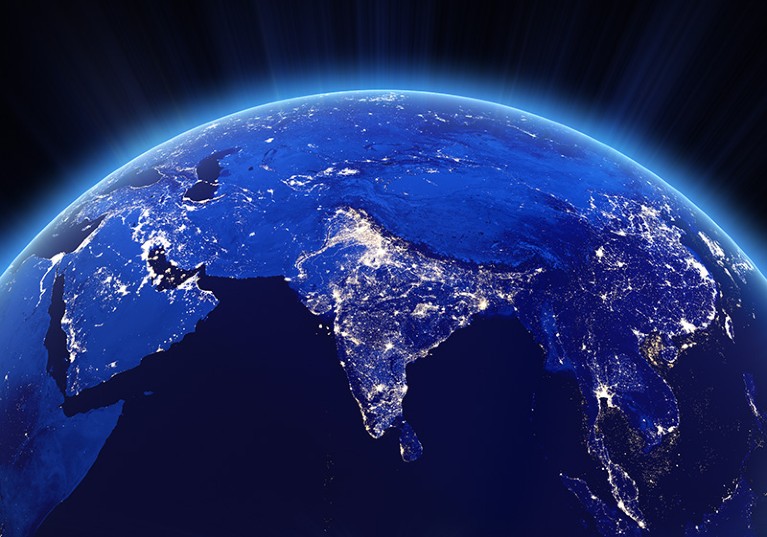
Credit: ixpert/Shutterstock
The social reformer and non-violent leader of India’s freedom movement, Mahatma Gandhi, once said: “In a gentle way, you can shake the world.” In August this year, the Chandrayaan-3 lander delicately extended its legs, bounced once, twice and settled near the lunar south pole. Perhaps the Moon shook a little, too.
By then, 2023 was already a momentous year for India. In April, it overtook China to become the world’s most populous nation, with 1.4 billion inhabitants. It is home to more than one in six of the world’s people.
In September, at a meeting in New Delhi of the G20 group of the world’s biggest economies, speculation around plans to rename the country Bhārat, its name in several Indian languages, began in earnest.
Whatever the name, India faces many challenges. This year saw flash floods and drought, worsened by global warming, as well as major infrastructure failures, such as the Odisha train collision, and rising religious conflict. It is a diverse country preparing to take the next steps in its economic and social development. In this Spotlight, Nature explores how science and technology can support that development.
We examine some key numbers to contextualize Indian science and its growing economy. We explore how India intends to invest in solar power to meet the rising demand for green electricity. And we look at how the climate disaster is hurting Indian citizens.
Gautam I. Menon tells us how the story of water is the story of India’s development. And we meet solar physicist Yoshita Baruah, who is investigating a different kind of storm to those exacerbated by global warming.
Along with many other nations, India faces a crisis caused by the over-prescription of antibiotics. We report on how Indian researchers are tackling this and other public-health problems.
The nation’s greatest strength is its people. We explore some of the schemes the government has introduced to lure back the brilliant minds who have already left and to incentivize others to stay. One solution could be to foster a stronger entrepreneurial culture.
India is one of many countries to be concerned about workplace mental health. We speak to biologist Annapoorna P. K. about her work investigating the mental health of Indian scientists.
And finally, Somak Rayachaudhury provides his personal perspective of Indian science today in a special episode of the Working Scientist podcast.


 Where science meets Indian economics: in five charts
Where science meets Indian economics: in five charts
 Renewable energy for the subcontinent
Renewable energy for the subcontinent
 We need to talk about water
We need to talk about water
 The climate disaster strikes: what the data say
The climate disaster strikes: what the data say
 I predict solar storms
I predict solar storms
 The fight against antimicrobial resistance
The fight against antimicrobial resistance
 How high-impact papers from Indian researchers are shaping science
How high-impact papers from Indian researchers are shaping science
 India struggles to turn science into societal benefits
India struggles to turn science into societal benefits
 Big ideas: India’s drive to stem the brain drain
Big ideas: India’s drive to stem the brain drain
 I study depression in the lab and advocate for mental health in academia
I study depression in the lab and advocate for mental health in academia







